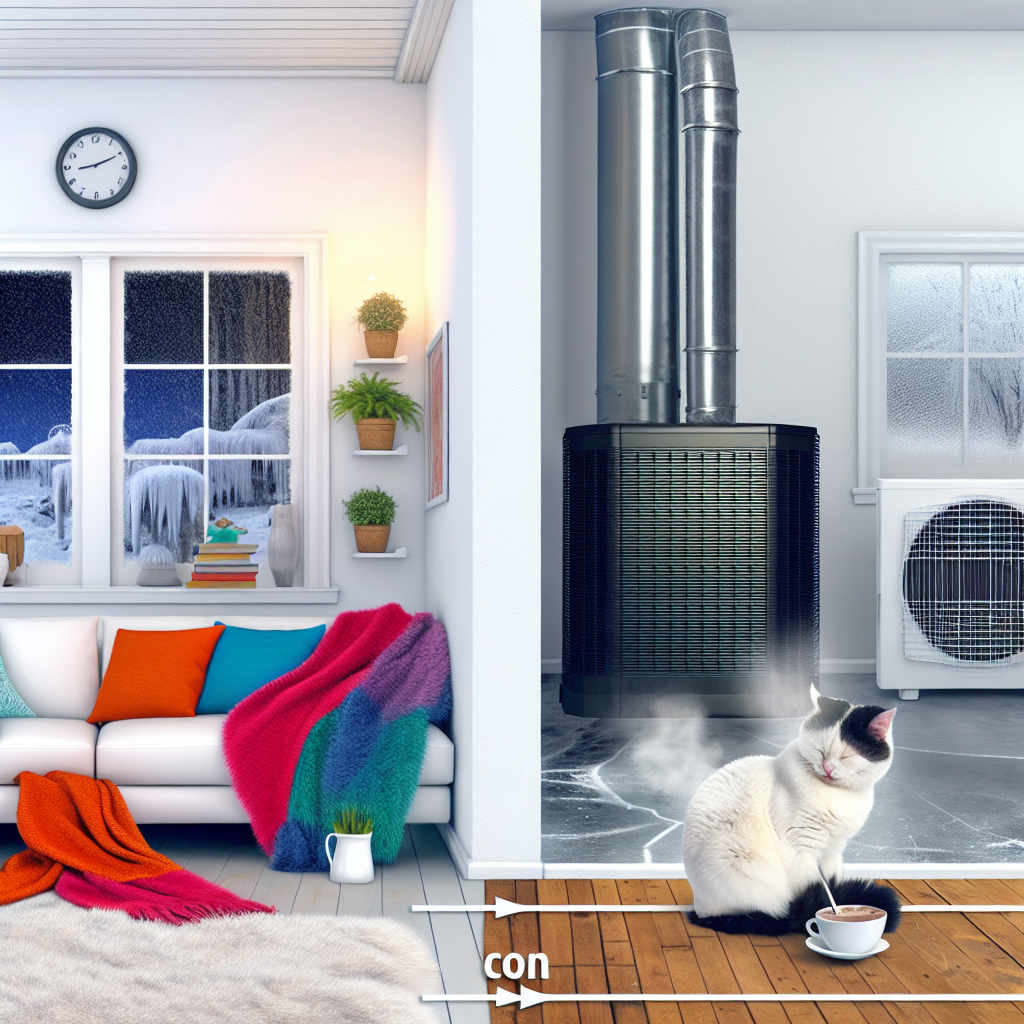Published: Jan 01, 2025

Heating your home efficiently and evenly is essential for maintaining a comfortable living environment during the colder months. However, if you're experiencing uneven heating in different areas of your house, it can lead to discomfort and higher energy bills. Understanding the possible causes of uneven heating and how to troubleshoot these issues can help you stay warm and cozy throughout the winter season.
One common reason for uneven heating is blocked or closed vents in certain rooms. When vents are obstructed by furniture, rugs, or other objects, airflow is restricted, resulting in a lack of heat distribution.
Dirty air filters can also contribute to uneven heating. When air filters are clogged with dust and debris, they restrict airflow, causing some rooms to be warmer than others.
Poor insulation in walls, windows, and doors can lead to heat loss in certain areas of your home. Inadequate insulation allows heat to escape, resulting in uneven heating patterns.
A malfunctioning thermostat can be another culprit behind uneven heating. If the thermostat is not working properly or is placed in a location that doesn't represent the average temperature of your home, it may result in some rooms being colder or warmer than desired.
Issues with your HVAC system, such as a malfunctioning furnace, duct leaks, or improper system size, can also cause uneven heating. It's essential to maintain your system regularly to ensure it operates efficiently and evenly.
Inspect all the vents in your home to ensure they are open, clean, and free from obstructions. Adjust the vents for proper airflow distribution, and make sure there are no blockages hindering heat circulation.
Regularly replace your air filters to maintain proper airflow and prevent dust buildup. Clean filters ensure that your HVAC system can distribute heat evenly throughout your home.
Enhance the insulation in your home by sealing drafts, adding insulation to walls and attics, and installing weather stripping around doors and windows. Proper insulation helps retain heat and promotes consistent heating.
Calibrate your thermostat to ensure accurate temperature readings and proper functioning. If your thermostat is outdated or malfunctioning, consider replacing it with a programmable one to manage temperatures more effectively.
Routine maintenance of your HVAC system is crucial for optimal performance and even heating. Schedule professional inspections and tune-ups to address any potential issues and keep your system running smoothly.
Dealing with uneven home heating can be frustrating, but by identifying the underlying causes and following these troubleshooting steps, you can achieve a more balanced and comfortable indoor environment. Regular maintenance, proper insulation, and addressing any HVAC system issues are key to maintaining consistent heating throughout your home.
**

Our expert technicians are ready to assist you 24/7!
Contact Us Today!Read our latest articles for helpful information about heating, cooling, and air quality.
Regular air duct cleaning offers a multitude of benefits, including improved air quality, enhanced energy efficiency, p...
Read MoreRecognizing signs such as age, rising energy bills, frequent repairs, uneven heating/cooling, and strange noises/odors...
Read MoreRegular HVAC maintenance is crucial for keeping your system running smoothly, avoiding costly repairs, and improving ene...
Read MoreUpgrading to energy-efficient HVAC systems through measures like programmable thermostats, duct sealing, high-efficienc...
Read More